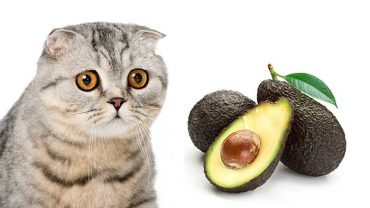Avocado is a fruit that’s unique in its own right. While many other fruits are primarily made up of carbohydrates, avocados are rich in healthy fats.
The fruit packs so many health benefits that it has featured significantly among the top human superfoods. But can cats have avocado?
The straight answer is “yes,” cats can eat avocados. As a matter of fact, most cats actually love avocados. They find the fatty, creamy taste yummy and delectable. However, the scenario is a little more complicated than that.
As you may already know, human food isn’t necessarily ideal for pets. That’s for the simple reason that humans and animals have different nutritional requirements and biological makeups.
A particular food that we find delectable and nutritious may prove to be very disastrous for cats. However, cats aren’t intelligent enough to know that. That’s why you will often see them milling around the dinner table, begging for food.
In most instances, their begging behavior isn’t necessarily driven by hunger pangs. Instead, the habit emanates from their intense curiosity to discover how human food tastes like.
And since we so passionately care about them, we’re often tempted to throw some avocado slices their way. But how should you feed avocados to your feline friend, and in what portion?
These and other similar questions shall be the focus of this article.
Table of Contents
Possible Health Benefits of Avocado
As a caring and dedicated pet owner, you might be wondering to yourself, is it safe for a cat to eat avocado?
Well, the best way to answer this question is to begin by highlighting a few possible health benefits of the fruit. The following are some of these benefits.
1. Promotes a Healthy Heart
Heart and cardiovascular diseases are some of the most common feline health problems. These conditions often result from sedentary lifestyles. However, they could also be indicative of an underlying medical condition.
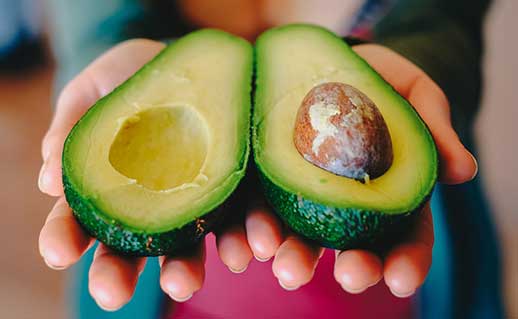
Thankfully, avocados can help avert numerous heart diseases. The fruit is rich in potassium, which performs various critical heart-related functions in the body.
Certain studies have linked potassium to reduced blood pressure. As you probably know, blood pressure is the greatest risk factor for strokes, heart attacks, and multiple organ failure.
2. Contains Healthy Fats
Any pet owner would cringe at the idea of adding a fat-laden food to their cat’s diet. But not when the fats in question are healthy fats.
Avocados pack a monounsaturated fatty acid known as oleic acid. The acid is notable for its anti-inflammatory properties.
Therefore, avocado would just be the perfect treat for felines that suffer from chronic inflammations. Better yet, you can add it to your cat’s food to help manage inflammations resulting from physical injuries.
3. Great for Incontinent Cats
Bowel incontinence is a major digestive complication among cats, especially those whose eating behaviors aren’t properly monitored.
But with sufficient fiber in your cat’s diet, constipation and bowel incontinence will be the least of your worries.
Indeed, fiber is one of the most effective health remedies for constipation. That’s because it’s a natural remedy. Therefore, you can administer it to the cat without worrying about the side effects.
Avocado is loaded with both soluble and insoluble fiber. Soluble fiber constitutes 25% of the fruit, while insoluble fiber makes up 75%.
All of these interact favorably with the friendly gut bacteria that live in the feline’s intestine. By improving the efficiency of this bacteria, your cat will have the most regular bowel movement.
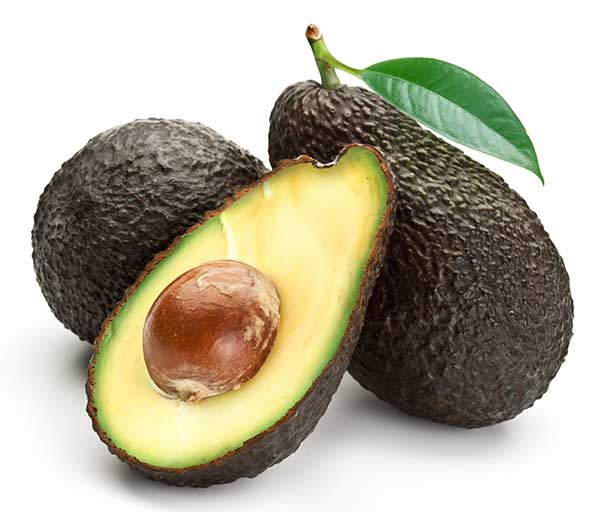
Another significant benefit of fiber is with regards to weight loss. The substance comes with a remarkable filling effect.
Therefore, you can easily add it to your feline’s diet as an appetite suppressant. With fiber in her food, the cat will only eat small portions and feel full for hours.
Lastly, fiber has positive effects on blood sugar. It’s been shown to reduce spikes in blood sugar, which ultimately helps promote a healthy heart.
4. Contains Antioxidant Properties
Another significant benefit of avocado is its immense antioxidant properties. These antioxidants come with a host of health benefits.
Some of the antioxidants include carotenoids zeaxanthin and lutein. Various research studies have proven that these carotenoids carry significant health benefits for the eyes. They basically fight macular degeneration and lower the risks of developing cataract.
Older cats can especially benefit from these vision-enhancement effects, as they are the group most susceptible to vision loss.
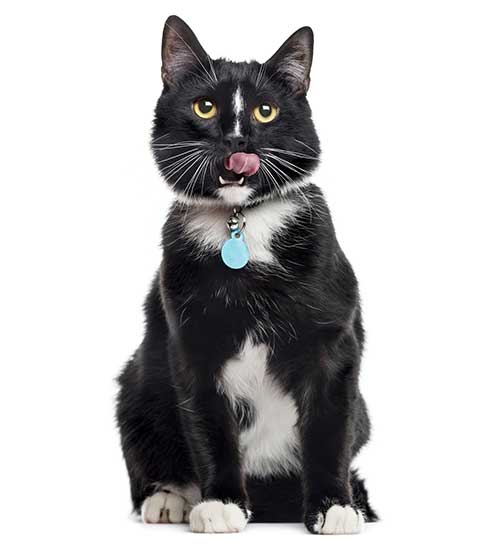
Remember that your cat faces numerous potential predators, even at home. Therefore, the worst thing that could happen is for the cat to lose her sight.
Apart from improving the health of your cat’s eyes, antioxidants have also been lauded for their ability to inhibit the proliferation of cancerous cells.
Not only is an avocado treat helpful in terms of preventing the occurrence of cancers. Its anti-inflammatory benefits will also kick in to reduce the effects of cancer treatments, such as chemotherapy and surgery.
5. Relieves Arthritis Symptoms
Arthritis is another debilitating illness that you wouldn’t wish on any cat.
The disease can easily and permanently immobilize a once hyperactive feline. Therefore, you should strive to prevent it from happening in the first place.
According to certain research studies, a combination of soybean and avocado extracts, also known as avocado and soybean unsaponifiables, can prevent the degeneration of osteoarthritis.
6. Lowers Cholesterol
Another benefit of avocado for cats is lowering the level of cholesterol in their bodies.
According to studies primarily conducted among human populations, avocado has been shown to reduce the total cholesterol levels in the blood significantly.

It lowers blood triglycerides and LDL cholesterol by up to 20 and 22 percent, respectively. On the other hand, it increases the HDL cholesterol by around 11%.
These improvements in the cholesterol profile of your cat help ward off certain diseases, especially cardiovascular conditions.
Apart from the benefits mentioned above, avocado has many other health and nutritional advantages to your feline. Those advantages come from the essential minerals and vitamins that the fruit contains.
Examples of these minerals and vitamins include Vitamin A, Vitamin K, Vitamin C, Folate, Vitamins [B1, B2, B3, and B5], Vitamin B6 and Vitamin E.
There are also traces of zinc, iron, copper, magnesium, manganese, and phosphorus in the fruit. Not to mention, high calories and loads of healthy fats.
Remarkably, avocados do not contain sodium or cholesterol. Plus, they’re low in saturated fats. That definitely sounds like the right fruit for your furry friend. But still, can cats have avocado? Let’s find out.
What Happens If A Cat Eats Avocado?
Having looked at the many potential health and nutritional advantages that avocado packs, you could still be asking, is it safe for cats to eat avocado?
One of the most common misconceptions is that avocados are poisonous for cats. This misconception is often fuelled by the fact that the fruit contains a toxin known as persin.
Well, persin is highly toxic to horses, birds, goats, rabbits, and many other domestic animals. After eating avocados, most of these animals exhibit kidney-related symptoms.
If the symptoms go undetected and the animal is not brought in for treatment in time, kidney failure could occur. Thankfully, the biological makeup of cats is different from that of most animals.

According to ASPCA, cats are relatively resistant to persin poisoning. So, is avocado toxic to cats?
Well, not quite, at least not as far as persin poisoning goes. But should you get too excited? Not really. Many things could still go wrong if your cat ate an avocado, especially if she had much of the fruit than she’s supposed to.
The following are some of these potential dangers. First and foremost, you should identify the variety of avocado that’s most suitable for cats.
Though cats are resistant to persin poisoning, certain avocado varieties like the Guatemalan avocado contain worrying levels of this chemical. You certainly don’t want to introduce such substances into your cat’s system, no matter how risk-free the chemical is.
Secondly, avocados may be soft and creamy. However, they contain a pit that’s almost as hard as a rock. Due to their poor judgment, cats may not understand how hard this pit is.
Remember that like many carnivores, cats don’t chew their foods. Instead, they gulp it down whole. When that happens, the pit could get stuck in their throats, thereby causing a choking hazard.
The following are some common signs that your cat has ingested an avocado pit;
- Coughing,
- Vomiting,
- Difficulty breathing,
- Difficulty swallowing,
- Elevated heart rate,
- Fever,
- Diarrhea and
- Abdominal pains,
As a responsible cat owner, you should always remove the pit before serving the fruit to your feline.
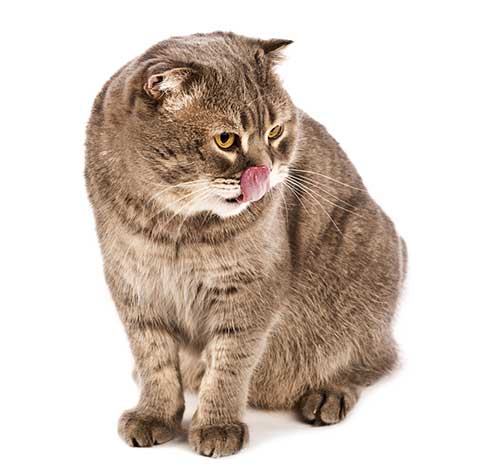
Another thing you must remove is the skin, also known as the peel. This leads us to the question, can cats eat avocado skin?
Like the pit, avocado skin may prove difficult for your cat to chew. Plus, it’s not as tasty as the flesh. However, the most important reason for removing the skin is that it could contain aerosol residues.
Like many other fruits, avocados are grown under controlled conditions. The fruit is regularly sprayed against pests, insects, and other vermin.
The good news is that most of these aerosols are eco-friendly and biodegradable. But the bad news is that when they aren’t washed down into the soil thoroughly, they could be oxidized into potentially harmful compounds.
With other fruits like apples, you would consider washing to remove these residues. But since cats shouldn’t eat avocado peel, your best bet is to remove the skin altogether.
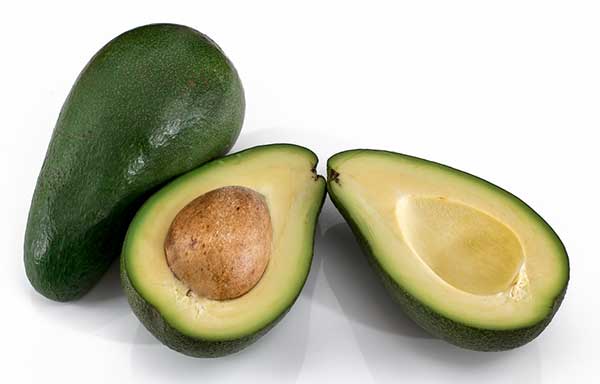
Apart from the pit and the peel, other parts that could cause esophageal obstruction include the leaves and stems of the avocado plant.
The leaves are especially discouraged, as they contain the highest concentration of the toxin persin.
According to research, avocado leaves are also associated with inflammation and damage to mammary glands. Therefore, they could affect your cat’s inability to secrete milk. So, if you’ve always wondered, can cats eat avocado leaves?, you’ve got your answer right there.
Now, we’ve already highlighted some possible adverse effects when a cat eats avocados. Apart from those, the high-fat content in avocados might cause pancreatitis.
Pancreatitis is a severe condition that should be treated with the urgency it deserves. If left untreated, more severe diseases like hepatic lipidosis and cat diabetes might result.
Eating lots of avocados also comes with gastrointestinal complications. Examples include vomiting and diarrhea, stomach ache, and lack of stool production.
Which Form of Avocado Is Best For Your Cat?
Apart from avocado flesh, there are various other forms in which the fruit can be found. Most notably, there’s avocado oil. But can cats eat avocado oil?
Absolutely. Avocado oil has nearly the same benefits as the flesh itself. Plus, it’s readily absorbed into your cat’s system.
Another advantage of avocado oil is that it contains lower levels of persin. That’s because the concentration of this chemical decreases as the fruit ripens.
Besides its vast nutritional advantages, avocado oil may also be prescribed for external application.
The oil is a renowned moisturizer that helps invigorate and condition your cat’s coat and fur. However, always ensure the oil is pure and not laced with any additives.
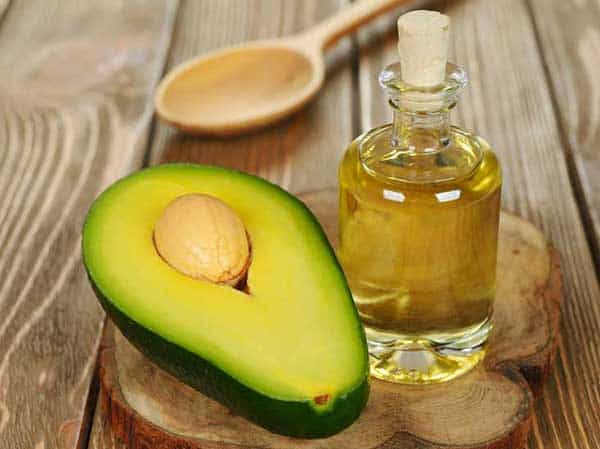
Another common form in which avocado exists is guacamole. Actually, one of the most popular uses of avocados is in the making of guacamole.
Guacamole is essentially an avocado-based spread, salad, or dip. Guacamole is preferred for its high water content.
Additionally, it contains calcium, phosphorus, and sugar. Some guacamole recipes also feature lime, salt, and garlic. Evidently, some of the ingredients, such as water and phosphorus, are great for your cat.
The acidic nature of the spread may also help stabilize the acid-base balance in your feline’s intestines. However, other ingredients are potentially toxic. Examples include garlic and salt.
Before buying guacamole, read the ingredients list and ensure the list doesn’t contain any substances that cats shouldn’t eat.
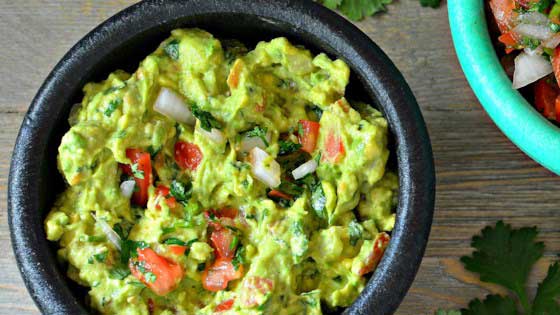
So, will avocado hurt cats? It surely will, depending on how you serve it and the amount the cat eats.
Are you interested in finding out how to feed avocado to cats?
First and foremost, always offer fresh avocados to cats. The fruit should be ripe enough to be tasty and nutritionally beneficial for the feline.
Next, wash the fruit carefully, then peel the skin off. Cut small slices and offer it to your cat, observing how she likes the new food. You can serve the slices as standalone treats or mix them into your cat’s main food.
The cat could find the fruit repulsive at first, or she might be taken by it from the get-go. Whichever the case, monitor her reactions carefully and ensure you only offer the fruit as an occasional treat.
Can Kittens Eat Avocado?
While avocado isn’t poisonous to cats, kittens shouldn’t eat it. That’s because the immunity systems of kittens aren’t as developed as those of adult cats.
Therefore, the toxic chemicals in avocado could have significant effects on them. The choking risks we’ve discussed are also higher in kittens than they are in adult cats.
Conclusion: So, Can Cats Eat Avocado?
Cats can definitely eat avocado. In fact, cats and avocado are inseparable in certain homes. The fruit contains a chemical toxin that fortunately poses no dangers to your feline.
However, avocados can easily turn from a sweet treat to a life-threatening disaster if the cat eats excess of it.
Always monitor the portions, looking out for side effects and addiction. Above all, remember that your feline’s main food consists of meat, and nothing should replace that.

